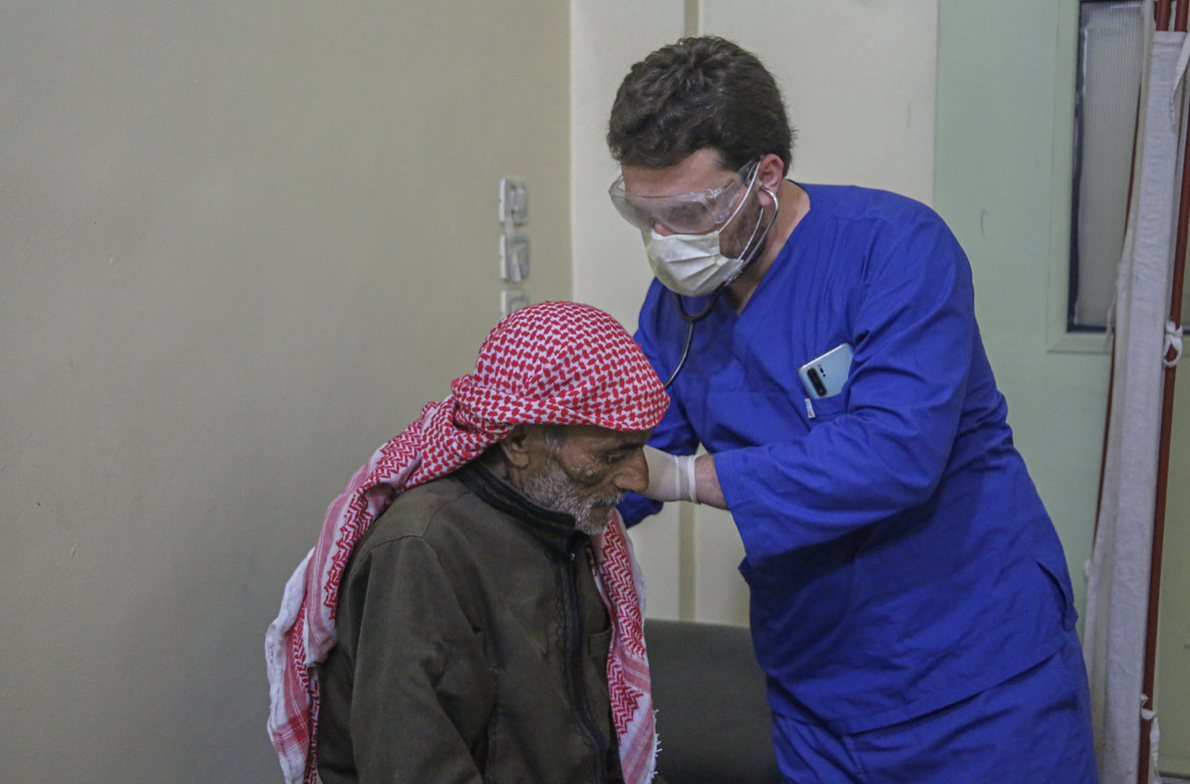
Ramadan in 2020 in Yemen has become very different from that in previous years. In Yemen, suffering is compounded by the ravages of the armed conflict that has been going on for more than five years, has led to extreme poverty, hunger and the urgent need of millions of Yemenis. The political, military and humanitarian crisis in Yemen continues to worsen. Yemen began this crisis as one of the poorest countries in the world and since then has declined further. Health authorities in Aden have now declared the city to be “infested” with Covid-19, and noted a rapid increase in new cases and related deaths. Governorates that appear to be at the centre of reported cases in the south include Aden, Taiz, Hadramout and Lahj. However, according to the WHO, there have been 193 positive cases of Covid-19 and 33 related deaths. Nevertheless, fears persist among health officials that the virus is rapidly spreading undetected across Yemen. The UN described the situation as "extremely alarming".
The Humanitarian Country Team confirmed that there are now five labs in Yemen with Covid-19 testing capacity. The labs are located in the governorates of Sana’a, Taizz, Aden and Hadramout. Additionally, 38 Covid isolation units have been set up across Yemen. The number of ICU beds remains at 520 and ventilators at 194. Ministry of Health has recorded the completion of 800 Covid-19 tests by mid-May. The humanitarian crisis in Yemen is still the largest in the world, with more than 24 million people - 80 percent of the population - in need of assistance and protection. The current Corona pandemic has compounded these needs, as epidemiologists estimate that Yemen is vulnerable to the rapid and widespread spread of the virus and with deadly consequences more than many other countries.
The UN has appealed to donors and funders to transfer funds previously pledged and pledge generously to support urgent relief operations ahead of the prospective donor conference. The United Nations agencies and partner humanitarian relief agencies estimate that it will need about two billion dollars to cover basic programs that include the requirements for responding to the Corona pandemic, until the end of this year. The UN stated that
"The actual incidence is almost certainly much higher. Tests remain in short supply. Aid agencies in Yemen are operating on the basis that community transmission is taking place across the country."
Donors and humanitarian actors are concerned by the continued delays for the import of Covid-related goods and supplies. In February 2020, the UN refugee agency reported that since 2015, the war had displaced three million people, more than one million of whom are internally displaced. The situation has worsened under the four-year land, sea, and air blockade imposed by coalition forces, obstructing vital supplies of food and medicine to the country.
WHO and IOM have raised concerns over the stigmatization of and xenophobia toward migrants in Yemen, particularly those of East African origin. This increased after the first reported case of Covid-19 was a Somali refugee. “Migrants in Yemen are being stigmatized as ‘transmitters of disease.’ Xenophobia and scapegoating campaigns are leading to retaliation against these vulnerable communities, including physical and verbal harassment, forced quarantine, denial of access to health services, movement restrictions, and forced movements to conflict front lines and desert areas, leaving them stranded without food, water and essential services.”
The 2020 Yemen pledging conference will be held on 02 June, with Saudi Arabia as the co-host alongside UN OCHA. Saudia Arabia is expected to contribute US$500 million with specific earmarks for WHO and other UN agencies. The governments of the UK, Sweden, and Netherlands, along with other European donors, are likely to fund at equal levels to the last pledging conference in 2019. The US Government funding suspension is reportedly having a deterring effect on funds coming through from smaller donors, as some actors are reluctant to avoid being viewed at odds with the USG. The status of additional contributions from other prior Gulf donors, such as the UAE and Kuwait, is unknown. The United Nations calls the humanitarian crisis in Yemen “the worst in the world.” As the world struggles to deal with the Corona pandemic, it is extremely important that we maintain the existing relief operations in Yemen. Despite the enormous challenges faced by humanitarian personnel, including movement restrictions, lack of funding and measures to mitigate risks, we still provide food, water, health care, sanitation to millions of people every month.
Meanwhile, in the south of Yemen, the Southern Transitional Council continues to advocate for independence. Thus far, only two of the eight southern governorates have accepted the declaration of self-administration. While the Saudi-led coalition and pro-government forces have recaptured some territory, the Houthis retain control of the capital, Sanaa and much of the country. With numerous armed factions at odds over any potential settlement, UN-led efforts to broker a halt to the fighting have faltered.
Humanitarian Advisors call on all actors to realise and respect that the best way to end the humanitarian crisis in Yemen is to stop the war. Maintaining strong and principled relief operations will necessarily support efforts to facilitate a successful political process at these critical times.
3 thoughts on “What is the situation in Yemen?”
Comments are closed.